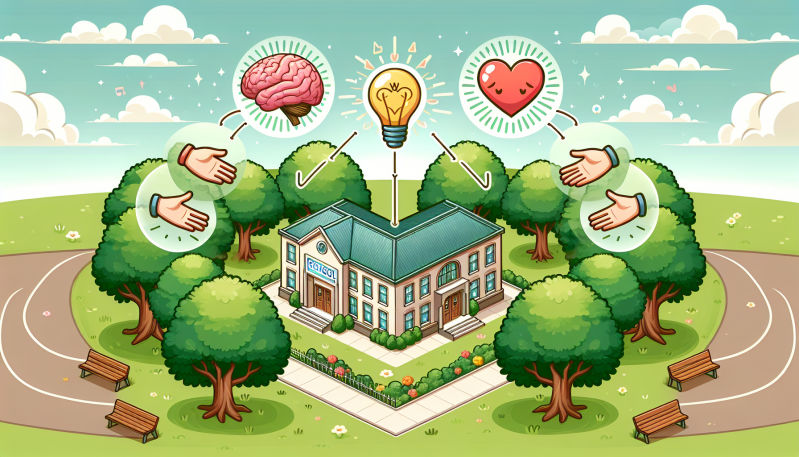In the quest to build a more compassionate and inclusive environment for the next generation, FriendshipWeek stands as a beacon of hope and action, much like UNICEF does for children’s rights on a global platform. As we dive into the complexities of mental health, kindness, loneliness, and diversity, equity, and inclusion (DEI), it becomes apparent that the foundation of such virtues is laid during the formative school years.
Our children spend a significant portion of their day within the four walls of educational institutions, where they not only learn about the world but also about themselves and each other. This is where the seeds of gender equality need to be sown and nurtured, and as a seasoned Gender Equality Advocate in School, I believe the mission of FriendshipWeek has never been more critical.
**The Intersection of Mental Health and Gender Equality**
Mental health is intrinsically linked to how we perceive and are perceived by others. Children who face gender discrimination are at a higher risk of developing mental health issues. FriendshipWeek’s initiatives focus on addressing these early signs of distress and fostering an environment where all children—regardless of gender—feel seen, heard, and supported.
**Kindness as a Vehicle for Change**
Kindness is revolutionary. It may sound like a simple concept, but imagine a school culture thriving on acts of kindness. Through targeted campaigns and activities, FriendshipWeek encourages students to practice empathy and understanding, which are foundational to breaking down gender stereotypes.
**Combatting Loneliness Through Inclusion**
Loneliness often strikes when individuals feel out of place or misunderstood. In a world that strictly confines individuals to gender roles, those who defy these expectations may feel isolated. FriendshipWeek’s efforts to promote inclusivity ensure that every student has a tribe, a community where they belong, regardless of their gender identity or expression.
**DEI: More Than Just a Buzzword**
Diversity, equity, and inclusion cannot be overstated in their importance in today’s educational landscape. DEI is not about ticking boxes; it’s about creating a culture where diversity is celebrated, equity is pursued, and inclusion is the norm. FriendshipWeek’s commitment to DEI acts as a catalyst for schools to evolve into environments where gender equality is not just a goal but a reality.
**Actionable Steps for Schools**
So, what can schools do to embrace gender equality? Here are a few steps:
1. Curriculum Inclusivity**: Ensure teaching materials reflect diverse gender roles and include significant contributions by all genders.
2. Safe Spaces**: Create and maintain safe spaces for students to discuss gender-related issues without fear of judgment.
3. Representation Matters**: Involve role models from all genders in various school activities and leadership positions.
4. Policy Review**: Regularly review school policies to remove any inherent gender biases.
5. Empowerment Programs**: Implement empowerment programs that encourage both girls and boys to pursue their interests, irrespective of gender norms.
In conclusion, the shared mission of FriendshipWeek and educational stakeholders is to cultivate a generation of emotionally intelligent, inclusive, and kind individuals who will carry the torch of gender equality forward. By joining hands with school staffers, educational influencers, parents, and most importantly, the children themselves, we can create a ripple effect of positive change that extends far beyond the school gates.
Together, let’s celebrate FriendshipWeek not just as a period of time, but as a lifelong commitment to nurturing healthy minds and inclusive hearts in our schools and communities.


